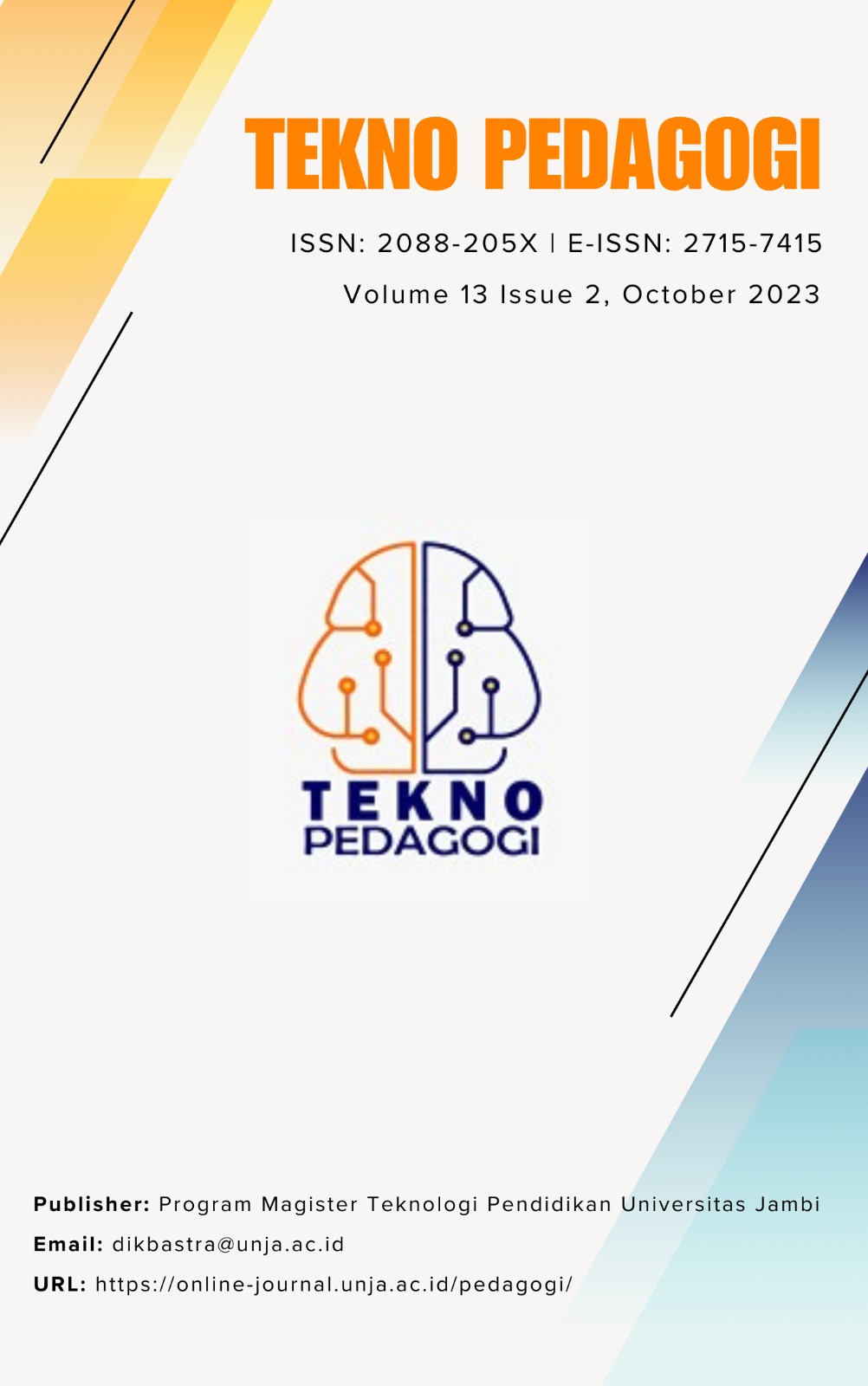Development of an English Narrative Writing Book for Class XI Students
DOI:
https://doi.org/10.22437/teknopedagogi.v13i2.32515Keywords:
Book Development, English, Students, WritingAbstract
This research aims to develop an English narrative writing book for class XI students using a structured development model. Through the stages of need identification, analysis, development and product evaluation, the book is prepared taking into account quality standards and student learning needs. Book validation is carried out by subject experts, design experts, teachers and students, who state that the book is content valid and suitable for use in learning. The results of product trials showed positive responses from various parties, confirming the book's effectiveness in improving students' English narrative writing skills. The novelty of this research lies in the systematic approach in developing English narrative writing books for class XI students, which pays attention to various aspects of learning and ensures relevance to students' needs. The implication of this research is that it contributes to enriching learning resources in English subjects at the secondary school level, as well as providing meaningful guidance for the development of English learning books in the future.
Downloads
References
Asmi, A. R., Dhita Surbakti, A. N., & C., H. (2018). E-Module Development Based Flip Book Maker for Character Building in Pancasila Coursework Sriwijaya University. Jurnal Pendidikan Ilmu Sosial, 27(1), 1. https://doi.org/10.17509/jpis.v27i1.9395
Hidayat, Z., Ratnawulan, & Gusnedi. (2019). Analysis of learning media in developing science textbooks with theme energy in life using integrated model for integrated 21st century learning. Journal of Physics: Conference Series, 1185(1). https://doi.org/10.1088/1742-6596/1185/1/012070
Islami, E., Zaky, A., & Nuangchalerm, P. (2020). Comparative study of scientific literacy: Indonesian and thai pre-service science teachers report. International Journal of Evaluation and Research in Education, 9(2), 261–268. https://doi.org/10.11591/ijere.v9i2.20355
Junedi, B., Mahuda, I., & Kusuma, J. W. (2020). Optimalisasi keterampilan pembelajaran abad 21 dalam proses pembelajaran pada Guru MTs Massaratul Mut’allimin Banten. Transformasi: Jurnal Pengabdian Masyarakat, 16(1), 63–72. https://doi.org/10.20414/transformasi.v16i1.1963
Rachmawati, D., & Asmara, C. H. (2018). Reading and Writing: Development of Project-Based Learning (PBL) Approach. 145(Iconelt 2017), 48–53. https://doi.org/10.2991/iconelt-17.2018.11
Reflianto, Setyosari, P., Kuswandi, D., & Widiati, U. (2022). English teachers’ competency in flipped learning: Question level and questioning strategy in reading comprehension. International Journal of Instruction, 15(1), 965–984. https://doi.org/10.29333/iji.2022.15155a
Simamora, E. W. (2017). The Effect of Student Team Achievement Division Cooperative Learning on The Concept Understanding Ability of Mathematic. 104(22), 407–411. https://doi.org/10.2991/aisteel-17.2017.87
Zhang, Z. (Tracy), & McGlone, M. S. (2019). Language matters: effects of linguistic agency assignment on HPV prevention advocacy in Chinese public health education materials. Chinese Journal of Communication, 12(2), 168–186. https://doi.org/10.1080/17544750.2018.1513853
Downloads
Published
How to Cite
Issue
Section
License
Copyright (c) 2023 Rachmawati, Niran Khumbangly, Do Thi Ha

This work is licensed under a Creative Commons Attribution 4.0 International License.





